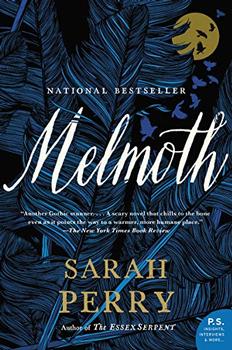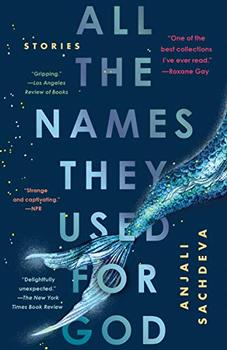Summary | Excerpt | Reviews | Beyond the book | Read-Alikes | Genres & Themes | Author Bio

Cora is not in a good place. She's in her mid-twenties and in a relationship with a married man called Lord. She has a dull job processing insurance claims and spends way too much time on the Internet. If this sounds like the starting point for run-of-the-mill contemporary women's fiction, don't be deceived.
Cora is pregnant and Lord is trying to force her into an abortion. Cora is also about to abandon her life in order to walk across New York State, following her mute Aunt Ruth to an unknown destination. She has not seen Ruth since Cora was eleven and Ruth was seventeen and could still talk. In the present, Ruth's not saying anything, but, even so, the aunt convinces Cora to abandon her home and life and, her thriving pregnancy notwithstanding, follow her into the unknown.
Mr. Splitfoot creates a dual narrative with chapters alternating between Ruth's past set around twenty years ago to Cora's contemporary story. As a child, Ruth and her sister El, Cora's mother, were placed in foster care at The Love of Christ! Foster Home and Mission, run by a man they call the Father, who leads a minor cult.
When El, thirteen years older than Ruth, is freed and leaves the home, Ruth, aged five, quickly forges a close sibling-like bond with fellow foster child Nat. Their story revolves around how they come to leave the foster home as teenagers by developing Nat's ability to appear to speak to the dead and holding séances without the Father's knowledge. Through these séances, the pair fall in with Mr. Bell, a young man with a similarly strange background. He provides them an escape route from the foster home but tying their fortunes to Mr. Bell brings other threats and challenges.
In Cora's story, taking place more than a decade later, Nat and Mr. Bell are nowhere to be seen. As Cora and Ruth travel toward a mysterious destination, Ruth remains silent while the two encounter characters in carefully crafted episodes.
The story of Ruth, Nat and Mr. Bell is intensely drawn and at times makes for harsh reading. Although beautifully written, Mr. Splitfoot does not spare the reader anything in its depiction of familial cruelty and the suffering of children growing up within a religious, paternal-dominated cult. Cora's life has been simpler than her aunt's – at least up to the novel's beginning, but here too, the author, particularly in the character of Lord, the father of Cora's baby, presents a cruel world that might repel some readers. Cora's odyssey across New York State, however, does make for fascinating reading as she sheds all trappings of modern life, most notably her smartphone, and trusts Ruth to guide her to safety and resolution.
Part ghost story, part love story, part modern gothic horror, Mr. Splitfoot is an original, vivid and compelling work of literary fiction. Although at times the story becomes almost mired in its own beautifully described misery – for example when Cora says, "There's sacrifice, antagonism, rebellion, obsession, and adoration, but no properly complex word for what's between a mother and a daughter, roots so twisted, a relationship so deep, people suffocated it in kitsch and comfort words to pretend it's easy" – uncovering the truth of Ruth's history and accompanying Cora towards motherhood is ultimately a rewarding journey.
![]() This review was originally published in The BookBrowse Review in January 2016, and has been updated for the
February 2017 edition.
Click here to go to this issue.
This review was originally published in The BookBrowse Review in January 2016, and has been updated for the
February 2017 edition.
Click here to go to this issue.

If you liked Mr. Splitfoot, try these:

by Sarah Perry
Published 2019
For centuries, the mysterious dark-robed figure has roamed the globe, searching for those whose complicity and cowardice have fed into the rapids of history's darkest waters - and now, in Sarah Perry's breathtaking follow-up to The Essex Serpent, it is heading in our direction.

All the Names They Used for God
by Anjali Sachdeva
Published 2019
For fans of Dave Eggers and Kelly Link, an exhilarating collection of stories that explores the mysterious, often dangerous forces that shape our lives - from censorship and terrorism to technology and online dating.




Read the best books first...
Click Here to find out who said this, as well as discovering other famous literary quotes!
Your guide toexceptional books
BookBrowse seeks out and recommends the best in contemporary fiction and nonfiction—books that not only engage and entertain but also deepen our understanding of ourselves and the world around us.